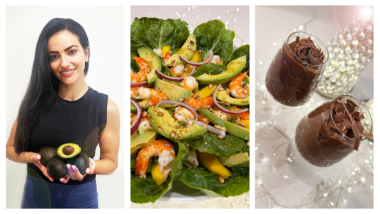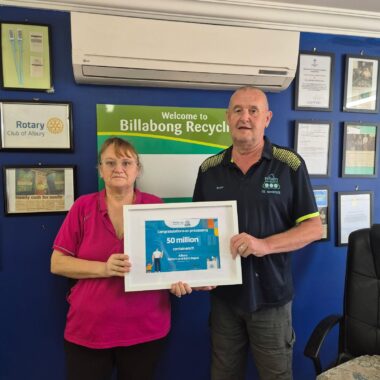A Jade Perch and aquaponics trial with the Commonwealth Scientific and Industrial Research Organisation (CSIRO), has validated Australian sustainability innovator Food Recycle’s technologies to turn commercial food waste into animal feed.
Food Recycle, which is currently crowdfunding via Swarmer to commercialise its circular economy technology and scale-up in Australia and New Zealand, says the evidence-based research done by the CSIRO is invaluable in delivering optimum results.
“Food Recycle’s patented process delivers on sustainability, circular economy, and food security outcomes for the global community, so it’s vital that our processes are scientifically validated to achieve the outcomes they are designed for,” says Food Recycle CEO, Norm Boyle.
The trial follows similarly rigorous trials with layer hens, prawns, and barramundi, conducted by CSIRO, Western Sydney University (WSU) and University of New England (UNE), all of which saw favourable results using a food waste diet from Food Recycle’s systems.
“The Swarmer campaign is a unique opportunity for the public to be a part of this sustainability journey and invest in shares in Food Recycle, starting from $250,” says Boyle.
Aquaponics trial
The Jade Perch aquaponics trial was conducted at the CSIRO’s research facility at Bribie Island, Queensland, and led by Dr Ha Truong, CSIRO's Agriculture and Food Business Researcher. (Watch a video of the trial here.)
In the trial, Jade Perch were fed a food waste diet, then fish waste is recycled, and the nutrients are used for growing leafy greens.
“We wanted to determine if using more sustainable and local ingredients would be beneficial for the growth of the fish and plants,” said Dr Truong.
“The results of the trial confirmed the technical viability, and showed that upcycling waste produced high quality foods for the future,” she added.
A truly circular solution
For every 100kg of food the world produced, 30kg is wasted, according to multiple sources, including the Australian Government’s Department of Climate Change, Energy, the Environment, and Water. Food Recycle’s mission is to eliminate this food waste problem with circular solutions that also help with food security.
“If the 30kg of wasted food goes through a Food Recycle facility, it can produce 15kg of aquaculture feed. When given to Jade Perch, this creates 10kg of fish and through aquaponics, it also creates 80kg of leafy greens,” says Boyle.
“This Aussie fish can be farmed around the world. Instead of 30kg of food waste going to landfill, 10kg of fish and 80kg of leafy greens goes back to supermarket shelves – that’s what Food Recycle is all about,” he adds.
About us:
About Food Recycle
Food Recycle is an Australian technology start-up that was founded to tackle the global problem of food waste. The company has a patented and patent pending technology to convert any commercial food waste into high performance animal feeds. Located in NSW, Australia, the company has worked with some of the best scientists in the country to develop and validate the technology.
Contact details:
Jack Mallen-Cooper
PR Consultant
Whyte Public Relations
(02) 9901 4306
[email protected]


